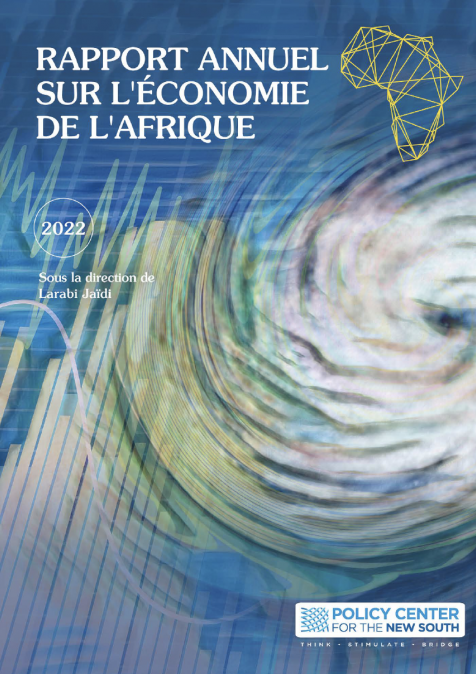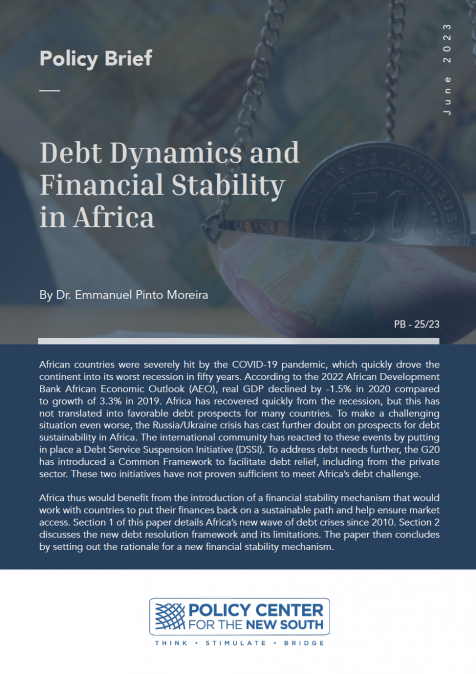Publications /
Opinion
What are the best ways forward to enhance the capacity, increase the impact, and ensure the long term viability of think tanks in Africa? These questions have been debated during the 2nd edition of African Think Tank Summit (ATTS) held in Rabat from May 9th to May 11th.
The African think tanks have positively evolved over the years in order to respond to the specific needs of their different countries. They operate as platforms to share knowledge and train young leaders, with some acting as lobbies and networks, while others are more focused on research. They contribute to a more positive narrative on Africa, as “the achievements of the past years have transformed the world’s views on the continent,” reminded Mohammed Methqal, Director of the Moroccan Agency of International Development. “The number of think tanks in Africa has tremendously increased since the 90’s,” said Olusegun Obasanjo, former President of Nigeria, in his keynote speech. “They play an effective role in Africa’s development and are a component of the sustainable development.”
In search of independence and a new model
Their main challenge is independence. Sources of financing still depend either on government or foreign donors, who have their own agendas. African think tanks are also in search of political independence, far from the US or the European models, where think tanks are often linked to political parties. According to Tawfik Mouline, Director of the Royal Institute for Strategic Studies (IRES) in Morocco, “We should not be duplicating solutions from elsewhere, but seek for our own solutions, based on facts and strong arguments.”
Think tanks may focus on public policies and give advice, but should clearly stay above the political game. “Their legitimacy is key at this stage of our democratization process,” said Idayat Hassan, Director of the Center for Democracy and Development (CDD), based in Abuja (Nigeria).
Autonomy is a key issue to address in order to preserve the public interest and find African solutions to African problems. Building integrity, working on impartiality and changing the narrative on Africa are the common points of focus for many. For instance, “the dominant narrative on Sahel is one of a hopeless case : drought, poverty, high rate of birth,” reminded Jalal Abdel-Latif, head of the Governance and Human Security Cluster at the United Nations Economic Commission for Africa (UNECA) and Senior Fellow at the OCP Policy Center. He continues, “African experts know that the flip side of Sahel is economic growth, rich extractive industries and a collective management of water resources.” Are some African think tanks inventing a new model? “Some have shifted towards being research consultancies in order to solve their financing problem, thus becoming a ‘think to do’ structure,” said Siré Sy, founder of Africa Worldwide Group in Senegal.
Why think tanks matter in Africa
Acting as a source of reliable information and building bridges between policy makers, academia, the private sector and public opinion, this is the impact think tanks are looking for in Africa, like everywhere else. “The private sector can benefit from the prospective work done by think tanks and their fact-based analysis of the current technological or geostrategic trends,” said Abdou Souleye Diop, President of the African and South-South Commission of the Confédération générale des entreprises du Maroc (CGEM, Moroccan business leaders’ conglomerate).“It is even more important in Africa, where the access to reliable data, either past, present or future, remains a major benefit companies are prepared to pay for.”
While think tanks in Africa tend to focus on their specific country’s problems or sectors, few are dealing with African issues as a whole – thus leaving ground for the African Development Bank (AfDB) or private consultancy firms to take the lead in research and advice. Nonetheless, a broad discussion informed by quality think tanks can lead to important platforms such as the Tana Forum in Addis-Abeba. This annual meeting is held by the Institute for Peace and Security Studies (IPSS, linked to the University of Addis-Abeba and mainly funded by the African Union), with a culture of “ free, candid and non-formal discussion on security issues,” says its Assistant Professor Tigist Yeshiwas Engdaw. Still, some education is needed on the ground to inform the broad public on the research done and its purpose. As Richard Fonteh Akum, Senior Researcher for ISS Africa explained, “At times we are accused of being spies just because we are called Institute for Security Studies…”
Giving hope with a competitive ambition
The African context in which the think tanks are operating remains difficult, with a mix of civil unrest, circulation of arms in the Sahel region, the digital revolution and a demographic transition implying a massive influx of youth on the labour market. As Mounia Boucetta, the Moroccan Secretary of State in charge of Foreign Affairs and International Cooperation has explained at the ATTS in Rabat, “We need think tanks to help create a new growth model and inject hope to the young generations.” Their intergenerational structures can help in training young leaders, in a context where competitiveness is at stake, concluded Tadesse Kuma Worako, Director of the Agricultural and Rural Development Research Center at the Ethiopian Development Research Institute (EDRI).“To feed the future, African think tanks should be more competitive and market-based, they should achieve competitiveness in terms of local as well as regional and if possible internationally as well. And that is possible through innovative ideas.”










